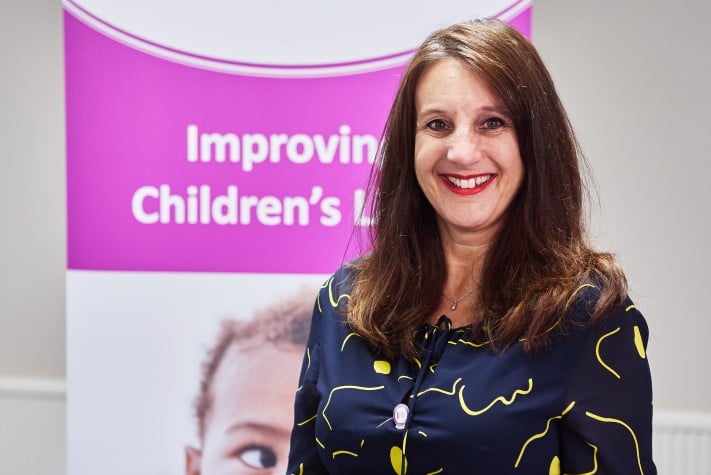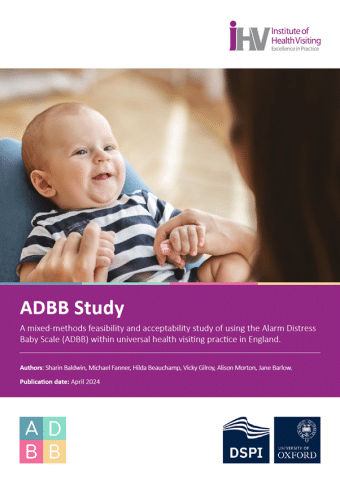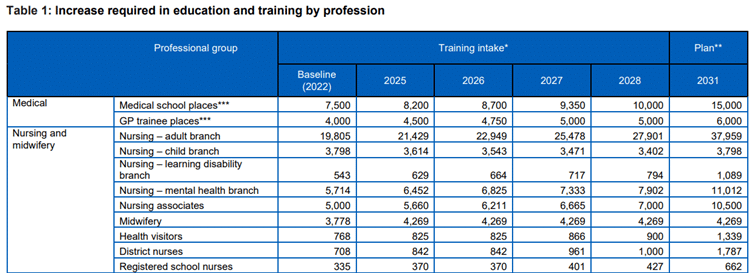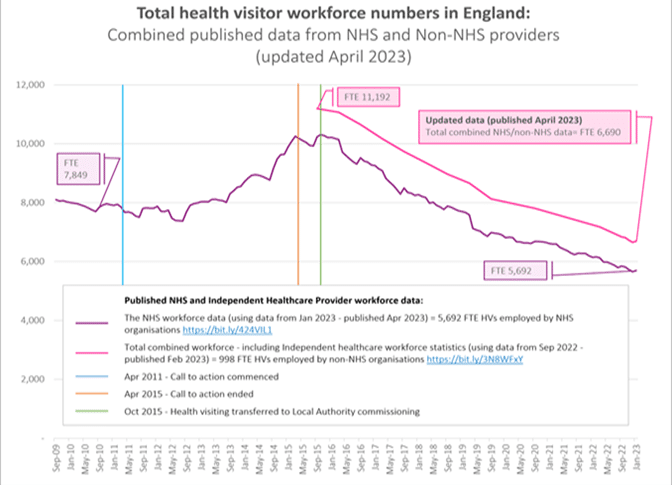This month, we are delighted to welcome Dr Michelle Moseley as the Institute of Health Visiting’s new Director for our Learning and Development department. Michelle will succeed Philippa Bishop who has skilfully led our learning and development work at the iHV for over ten years. Michelle takes up her position on 30 April 2025, with a short handover period with Philippa, following a national recruitment process.
Michelle is an experienced health visitor, educator, researcher and leader with an extensive career that spans several senior roles in the NHS, higher education and within national professional bodies.

Dr Michelle Moseley
Responding to her appointment and her new role ahead, Michelle said:
“I am thrilled to be joining the Institute of Health Visiting as Director of Programmes (Learning and Development). I have been a health visitor for the last 22 years having undertaken many roles since qualification – and in all of them, my guiding principle is to ensure that the babies, children, young people, families and communities that we serve sit at the centre of my practice.
“My roles have been varied since qualifying as a health visitor and have included being a lead nurse in safeguarding children, nurse educator leading the SCPHN programme and a variety of other roles at Cardiff University. In more recent years, I have worked at the Royal College of Nursing (RCN) Wales, as Education and Lifelong Learning Advisor and, most recently, at the RCN as Head of the King’s Nursing Cadets. I have recently completed my PhD which focused on evaluating the supportive nature of safeguarding supervision in health visiting practice. My PhD study recommends taking a person-centred focus to allow health visitors to be supported in the most challenging safeguarding practice situations.
“Never more has the voice of health visiting been required. I see the Institute of Health Visiting enhancing and enabling the voice of the health visitor in strengthening the quality and consistency of health visiting for the benefit of all babies, children, families and communities. Last year, the Darzi report recognised the poor state of child health and the NHS in England. This cannot be ignored – and requires health visiting to play its fullest part to improve health and reduce inequalities, especially when the 10-year health plan recommends a shift of service to more local care provision with an emphasis on early intervention and prevention. This is a key moment for health visiting and public health nursing.
“I am extremely passionate about the role of the health visitor, its future and impact on society as a whole. As I embark on this new career path as Director of Programmes at the Institute of Health Visiting, I aim to join them in becoming a leading voice not only for health visitors but more importantly, for the babies, children, families and communities at the centre of their practice.”
Alison Morton, iHV CEO said:
“We are delighted to appoint Michelle as our new Director and look forward to seeing the iHV’s learning and development programmes go from strength to strength. Michelle is passionate about ensuring that all health visiting practitioners are equipped to provide the highest standards of care to babies, children, families and communities – and has already achieved so much in her career so far.
“The whole team at the iHV and Board of Trustees would also like to thank Philippa Bishop who has skilfully led our learning and development portfolio of work over the last ten years. During this time, the iHV has grown considerably, and our learning and development offer has increased from a small handful of training courses in 2014, to the leading centre of excellence for health visiting continuous professional development that it is today. It is with sadness that we say goodbye to Philippa, but she should be proud of all that she has achieved. We thank Philippa for everything that she has given to the iHV, we have all benefitted from her leadership, passion, kindness and dedication, and we wish her every happiness and health in the years ahead.”

Philippa Bishop
Philippa Bishop said:
“It is almost 11 years since I joined the Institute of Health Visiting, initially as a Project Manager for the Making the Most of Health Visiting programme back in 2014. So much has happened in the years since, both professionally and personally. The iHV has grown to become a nationally recognised provider of training for health visitors and the wider multi-agency workforce across a range of subjects. It has been a privilege to lead the department, working alongside the excellent iHV team with its energetic facilitators, partnering with some brilliant experts and courageous lived experience practitioners. I am sad to be leaving the iHV family but delighted to hand the baton of the learning and development workstream to Michelle, enabling me to step back from work and step up my focus on my own family and their needs at this time.”














